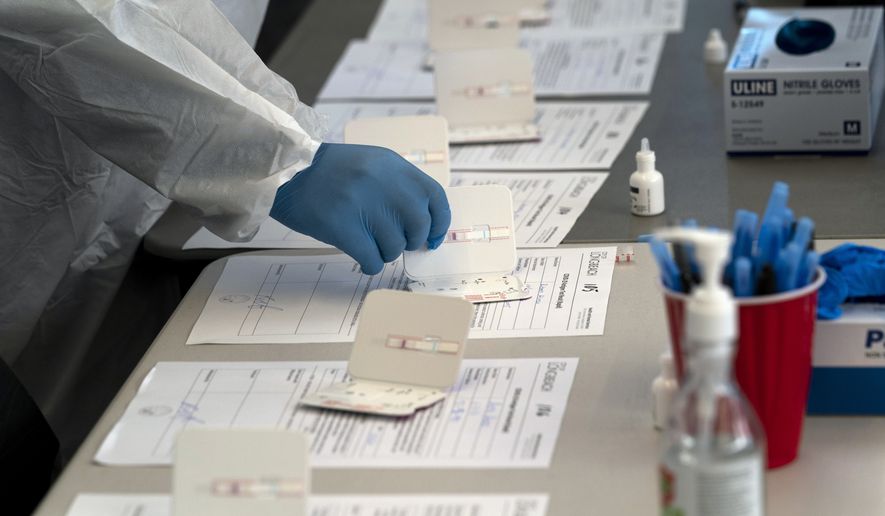The origins of the COVID-19 pandemic remain murky more than three years after its outbreak and may never be definitively known, senators told The Washington Times on Thursday after emerging from a closed-door briefing on the subject from Department of Energy officials and the intelligence community.
Members of the Senate Energy Committee sought answers from DOE officials following the agency’s recent classified report that there is low confidence the disease emerged from an unintentional lab leak in China, one of two main origin theories that divide the U.S. intelligence community.
Senators told The Times that briefers offered clarity on why DOE’s assessment changed from being undecided but less so on the pandemic’s origins.
“That’s going to be up in the air for quite some time. I don’t think anyone has a definite on that,” said Sen. Joe Manchin III, West Virginia Democrat and chairman of the committee. “The bottom line is we know that it started and spread rapidly from the Wuhan area in China, and we’re hoping to prevent that from ever happening again. The more we know, the better we can prepare for that.”
The origins of COVID-19 have been the subject of intense political discussions for years, with the second theory being that it came from an animal transmitting it to a human, potentially at a wet market in Wuhan selling fresh meat, seafood and fruit.
But based on information available to the public and from classified settings, Sen. Josh Hawley said the lab-leak theory is likelier the case despite disagreements among intelligence agencies.
“It looks to me like absolutely the most likely scenario is it came from a lab leak,” the Missouri Republican said. “I’ve got more clarity about why [DOE] switched their assessments.”
The briefing was designated as the highest level of classification known as Top Secret/Sensitive Compartmented Information, or TS/SCI, according to Sen. Mark Kelly, Arizona Democrat. That means lawmakers could reveal only a limited amount.
Mr. Kelly said he was not offered assurances about COVID-19’s origins. He stressed fear about the pandemic’s roots and future threats posed by China, which has sought to conceal information about the virus.
“Why would anyone be reassured? This is a worldwide pandemic, regardless of its origin. We continue to have concerns about the origin of this virus,” he said. “But even beyond that, programs that China and other countries work on that present a future risk to us is very concerning.”
DOE did not respond to a request for comment about which officials briefed senators.
The agency’s report determining “low confidence” in a lab leak from China’s Wuhan Institute of Virology. The report was leaked to The Wall Street Journal last month, underscoring the intelligence community’s uncertainty about the origins and reigniting political debate.
In addition to the DOE’s assessment, four government agencies and the National Intelligence Council believe with low confidence that COVID-19 was transmitted from animals to humans, two say with low or moderate confidence it was a lab leak and two remain undecided.
An unclassified 2021 origin summary from the Office of the Director of National Intelligence revealed the assessments, which did not disclose which specific agencies made each conclusion. It has since been disclosed that the FBI has moderate confidence it was a lab leak.
A bill from Mr. Hawley requiring that the Biden administration declassify the pandemic’s origins sailed through Congress last week without a single dissenting vote. President Biden has not indicated whether he will sign the measure, but Congress would presumably have a veto-proof majority if he were to reject the bill.
“I, frankly, think that there will be more progress made in our intelligence gathering efforts when the work of these various [intelligence community] agencies is made public,” Mr. Hawley said. “What will happen is the public will read it and … there will be fairly tremendous public pressure to get to the bottom of this.”
For more information, visit The Washington Times COVID-19 resource page.
• Ramsey Touchberry can be reached at rtouchberry@washingtontimes.com.




Please read our comment policy before commenting.